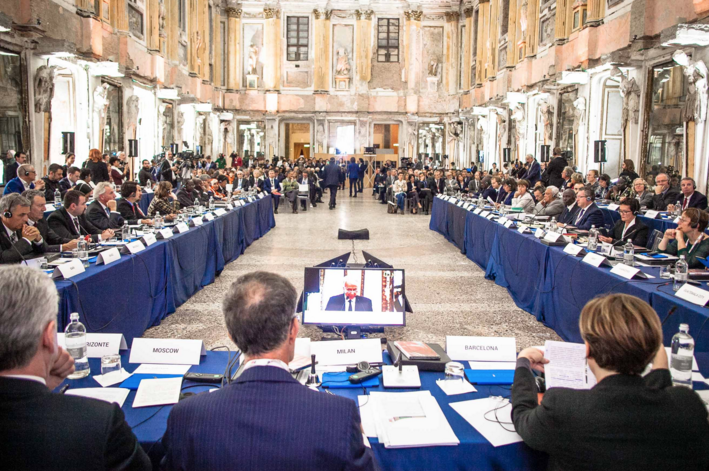
Photo: 100-cities-sign-global-food-pact
Over 100 cities sign global food pact
21 October 2015
by Jonathan Andrews
One hundred and seventeen cities have signed the Milan Urban Food Policy Pact, the first covenant from the Mayors on Urban Food Policies, that establishes a network of cities to work on sustainable food policies, sharing of ideas and suggestions.
“Today, in the presence of metropolises from all over the world that are home to 400 million people, we have achieved an ambitious goal: a commitment for the implementation of smart food policies in our cities,” said Giuliano Pisapia, Mayor of Milan. “This strong commitment entails concrete actions at the local level, aimed at facing global emergencies such as hunger, malnutrition and 1.3 million tonnes of food wasted every year.”
The pact is recognised as the first international protocol through which mayors commit to develop sustainable food systems to grant healthy and accessible food to all, protect biodiversity and fight against food waste.
“I am sure that synergies among cities can get results when states can’t achieve goals,” added Pisapia. “This is the reason why last year at the C40 Summit in Johannesburg, I proposed an international pact on food policies to other mayors. The response has been outstanding. We have worked hard and today a dream has come true. This is the beginning of a new challenge. Our cities can become an important example of equal and sustainable development.”
Ada Colau, Mayor of Barcelona, spoke about her city’s good practice: “We put effort into fighting food inequality. Municipalities can approve policies that guarantee food access to all their citizens. We are proud of our 39 covered markets: they are ecological places, where people can buy their groceries. They have become an important part of our city’s economy.”
The pact includes the commitment to develop and implement policies that promote fair, sustainable and resilient food systems and a framework of action that focuses on six different areas of intervention. These include governance, sustainable diets, social and economic justice, production, distribution, and waste.
“Cities have to guarantee access to quality food at adequate prices, as well as put in place enabling conditions for the production and distribution of food,” said Sergey Sobyanin, Mayor of Moscow. “In order to ensure food security, we have to consider the important role of the private sector in food production, transport and selling.”
The Director-General of the Food and Agriculture Organisation (FAO), Josè Graziano Da Silva, stressed that global crises are mostly perceived at the local level, therefore good solutions can come from cities: “This pact gives us the opportunity to work together–international organisations, administrations, civil society, the private sector. We have to join forces for a sustainable development. We can become the first ‘zero hunger’ generation.”
Signatory cities propose to meet regularly in order to discuss the adopted measures. An award for the city that achieves the best results will be also established. On the occasion of World Food Day, Pisapia presented the pact to the Secretary-General of the UN, Ban Ki-moon.







